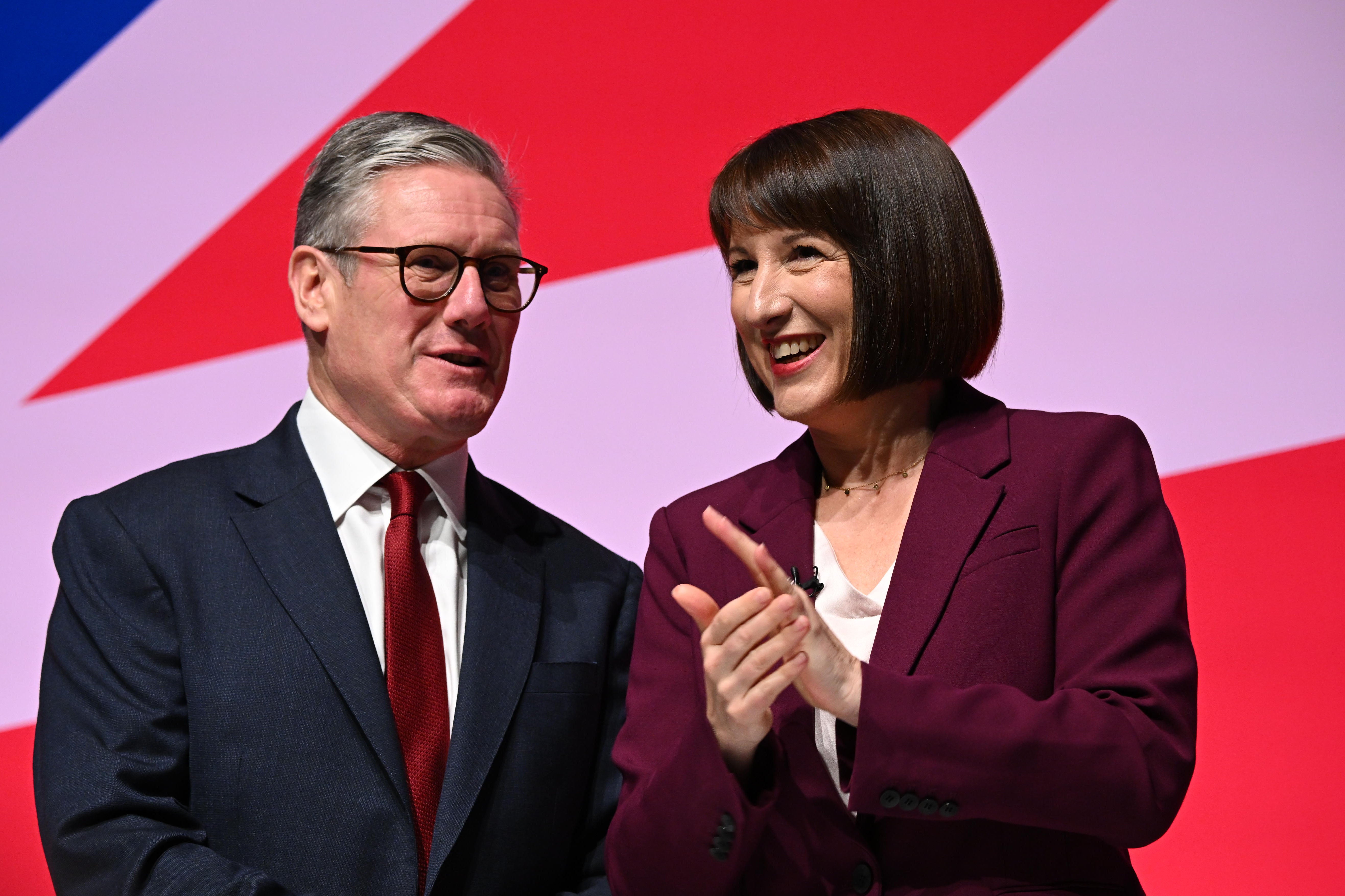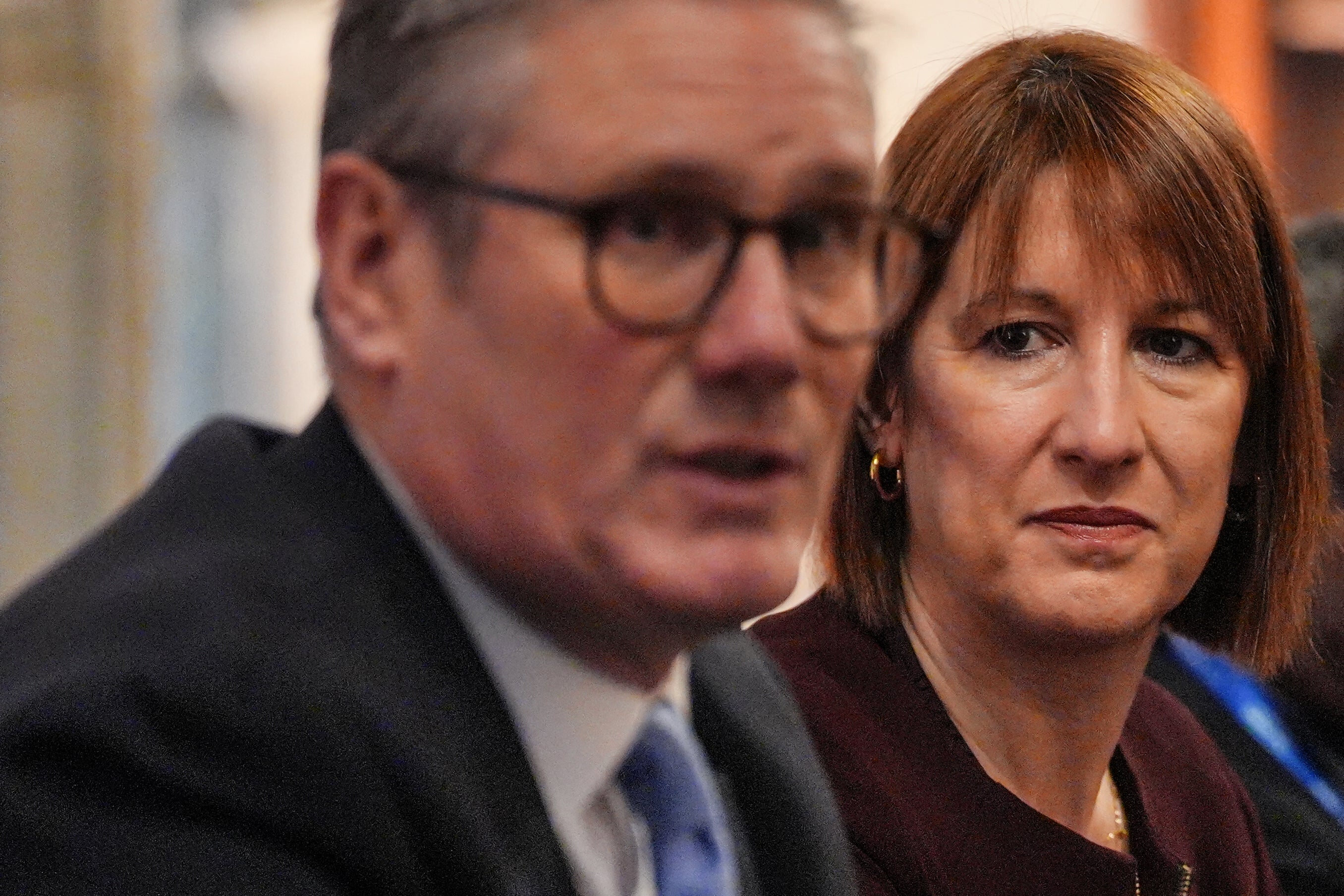Budget 2024: How could Labour find £40bn in taxes and cuts?
Labour has prepared the country for a “painful” fiscal event

Your support helps us to tell the story
From reproductive rights to climate change to Big Tech, The Independent is on the ground when the story is developing. Whether it's investigating the financials of Elon Musk's pro-Trump PAC or producing our latest documentary, 'The A Word', which shines a light on the American women fighting for reproductive rights, we know how important it is to parse out the facts from the messaging.
At such a critical moment in US history, we need reporters on the ground. Your donation allows us to keep sending journalists to speak to both sides of the story.
The Independent is trusted by Americans across the entire political spectrum. And unlike many other quality news outlets, we choose not to lock Americans out of our reporting and analysis with paywalls. We believe quality journalism should be available to everyone, paid for by those who can afford it.
Your support makes all the difference.Rachel Reeves will announce Labour’s first Budget in nearly 15 years today. There has been intense speculation around the highly-anticipated event as the new government continues to manage expectations.
Only a few weeks after the general election, Ms Reeves revealed that the Treasury was grappling with a £22bn “black hole” in public finances, placing the blame squarely on the outgoing Conservative government.
Just a few months later, reports indicated that the chancellor is looking to raise closer to £40bn from the upcoming budget. A Labour spokesperson said the £22bn “needed to be filled just to keep public services standing still,” but more is required to meet new spending targets.
The party’s gloomy messaging has set the stage for a Budget that’s set to bring several tax rises and spending cuts.
However, tax increases on “working people” – namely income tax, national insurance, and VAT – have been ruled out by the party’s manifesto.
These are the three largest sources of revenue for the exchequer, meaning the chancellor will likely be looking to make multiple, smaller tax and spending tweaks to raise the funds she’s after.
Here’s an idea of how the chancellor might find £40bn at the upcoming Budget:
New tax rises (£33bn)
The largest source of funding on 30 October by far is likely to come in the form of new tax rises. Ms Reeves has worked to prepare the country for these over the past few months, confirming in no uncertain terms that they are coming.
With the Treasury refusing to be drawn into speculation ahead of the Budget, it’s difficult to say exactly what will be announced. But there are some measures that economists and tax experts agree are more likely than others.
A surprise measure understood to be under consideration is a small increase to employer national insurance contributions (NICs), which could actually raise more money for Labour than any other change.
Employer NICs are paid by employers on their employees’ earnings at 13.8 per cent. Analysis by the HMRC in June showed that increasing by 1 per cent could raise around £8.5bn in the first year.
However, the Institute for Fiscal Studies has said this estimate is generous, as it does not factor in employer reactions. The think tank says the actual figure would likely be closer to £4.5bn.

Responding to reports, director Paul Johnson later added that the measure would be “a straightforward breach” of the Labour manifesto as the cost would be passed on to workers.
The next highest revenue-raising measure understood to be on the cards is an extension to the income tax threshold freeze which has been in place since 2021.
Called a “stealth tax” by critics, it has seen more people dragged into paying income tax as earnings increase year on year, but the point at which income tax starts being paid (or paid at a higher rate) stays the same.
They are set to remain frozen until 2028, but Labour may opt to push this date back even further to raise around £7bn.
A change to capital gains tax is also understood to be on the cards, promising to raise between £11m and £5.2bn depending on how it is implemented. Alongside changes to inheritance tax, pension tax relief, fuel duty, these tax raises could bring in an extra £33bn for the Treasury.
Previously announced measures (£7.2bn)
While Labour has refused to confirm and rumours around new tax rises ahead of 30 October, there are a few things we do know are coming.
In their pre-election manifesto, Labour laid out plans to increase funds by changing the non-dom tax system, imposing VAT on private schools, and closing the ‘carried interest’ private equity tax loophole.
Combined, these measures promise to raise £7.2bn, making a dent in Labour’s spending shortfall.
Spending cuts (£6.2bn)
The coming tax rises are also expected to be met with some moderate spending cuts. Shortly after Labour’s election victory, the chancellor announced a spending review which will evaluate several departmental plans.
Reports indicate that at least £3.2bn is being sought, largely to offset the cost of public sector pay deals made shortly after Labour came into power.
However, the spending of departments like health, defence and education are ‘protected’, placing them virtually off-limits. This means the axe is more likely to fall on areas such as transport, justice and housing, with plans reportedly dividing Sir Keir’s Cabinet.

It’s understood that even more substantial cuts are lined up for welfare spending. Labour has made no secret of its ambition to reduce the government’s welfare spending bill with the chancellor reportedly looking to find £3bn in savings.
What has been confirmed is a crackdown on benefit fraud, which looks to save £1.6bn over the next five years. Also possible is the mooted reform to personal independence payments (PIP) to provide cash vouchers or expenses rather than regular payments – a Conservative-era policy that Labour has refused to rule out.
Combined, these cutting measures would add up to £6.2bn. The plans have sparked backlash from critics who say the chancellor is ‘returning’ to Conservative austerity policies.
As with all speculation ahead of Wednesday, these measures are just the ones experts agree are most likely to appear in the Budget – and not confirmed by the Treasury.
For the latest on the Budget and all the updates as the announcement is made, follow The Independent’s live coverage.
Join our commenting forum
Join thought-provoking conversations, follow other Independent readers and see their replies
Comments